The MIAS Blog: News and Views about Ibn Arabi
More Recent Posts
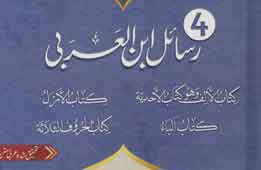
Rasail Ibn al Arabi – new editions
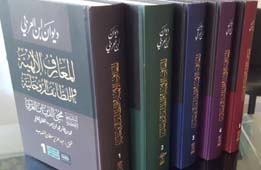
Critical Edition of Ibn ‘Arabi’s Diwān
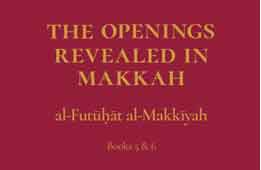
The Openings Revealed in Makkah
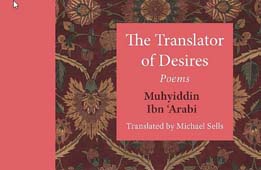
Translator of Desires – Michael Sells
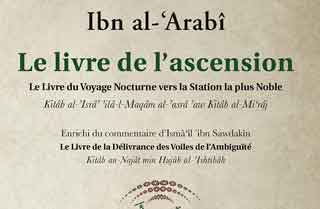
Ibn al-‘Arabî – Kıtâb al-’Isrâ
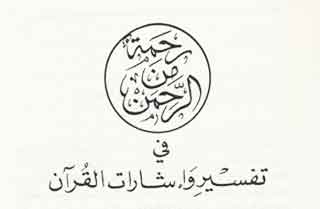
Shaykh Mahmud Ghurab
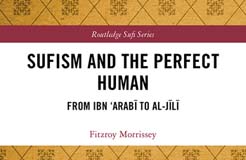
Sufism and the Perfect Human

Michel Chodkiewicz – A Legacy
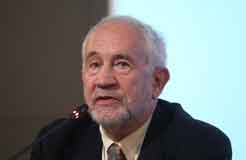
Discovering Compassion
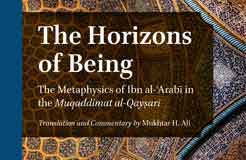
The Horizons of Being
Weakness, Fear, and Desire: Ibn ‘Arabi’s Introduction
to the Earthly Premises of Spiritual Discernment
James Winston Morris
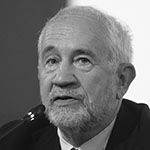 James W. Morris (Boston College) has taught and published widely on Islamic and religious studies over the past 40 years at the Universities of Exeter, Princeton, Oberlin, and the Institute of Ismaili Studies in Paris and London, serving recently as visiting professor in Istanbul, Paris, and Jogjakarta. He has lived and studied in regions from Morocco to Indonesia, and he lectures and leads workshops in many countries on Islamic philosophy and theology, Sufism, the Islamic humanities (poetry, music, and visual arts), the Quran and hadith, and esoteric Shiism. Recently he has led interfaith study-abroad programs centering on sacred sites, pilgrimage, sainthood, and related arts and architecture in Turkey and France.
James W. Morris (Boston College) has taught and published widely on Islamic and religious studies over the past 40 years at the Universities of Exeter, Princeton, Oberlin, and the Institute of Ismaili Studies in Paris and London, serving recently as visiting professor in Istanbul, Paris, and Jogjakarta. He has lived and studied in regions from Morocco to Indonesia, and he lectures and leads workshops in many countries on Islamic philosophy and theology, Sufism, the Islamic humanities (poetry, music, and visual arts), the Quran and hadith, and esoteric Shiism. Recently he has led interfaith study-abroad programs centering on sacred sites, pilgrimage, sainthood, and related arts and architecture in Turkey and France.
His publications include: Openings:From the Qur’an to the Islamic Humanities (forthcoming); Approaching Ibn ‘Arabi : Foundations, Contexts, Interpretations (forthcoming); Ma‘rifat ar-Rūh in Nur Ali Elahi's Knowing the Spirit (2007), and The Reflective Heart: Discovering Spiritual Intelligence in Ibn ‘Arabī’s "Meccan Illuminations"(2005).
Articles by James W. Morris
Introduction to The Meccan Revelations
Ibn ‘Arabi’s “Short Course” on Love
How to Study the Futuhat: Ibn Arabi’s Own Advice
Hur Man Studerar Futuhat: Ibn Arabis Egna Råd (Swedish)
Ibn Arabi: Spiritual Practice and Other Translations – Overview of the ten following articles:
Some Dreams of Ibn Arabi (PDF)
Introducing Ibn Arabi’s “Book of Spiritual Advice” (PDF)
“Book of the Quintessence of What is Indispensable for the Spiritual Seeker” (PDF)
Ibn Arabi on the Barzakh – Chapter 63 of the Futuhat (PDF)
The Spiritual Ascension: Ibn Arabi and the miraj – Chapter 367 of the Futuhat (PDF)
The Mahdi and His Helpers – Chapter 366 of the Futuhat (PDF)
Ibn Arabi’s ‘Esotericism’: The Problem of Spiritual Authority (PDF)
Communication and Spiritual Pedagogy: Methods of Investigation (tahqiq) (PDF)
Rhetoric & Realisation in Ibn Arabi: How Can We Communicate Meanings Today? (PDF)
Listening for God: Prayer and the Heart in the Futuhat | Part 1
Listening for God: Prayer and the Heart in the Futuhat | Part 2
Listening for God: Prayer and the Heart in the Futuhat | Part 3
Listening for God: Prayer and the Heart in the Futuhat | Part 4
Divine Calling, Human Response – Scripture and Realization in the Meccan Illuminations | Part 1
Divine Calling, Human Response – Scripture and Realization in the Meccan Illuminations | Part 2
Opening the Heart: Ibn Arabi on Suffering, Compassion and Atonement
Ibn Arabi and his Interpreters – Overview of 28 articles and reviews in this section
Ibn ‘Arabi and his Interpreters I – Four overviews, description of the following:
Ibn Arabi; in the “Far West” (PDF)
Except His Face: The Political and Aesthetic Dimensions of Ibn Arabi’s Legacy (PDF)
Situating Islamic ‘Mysticism’ (PDF)
Ibn Arabi and His Interpreters — Grouping I:
Overviews
Ibn Arabi; in the “Far West” (PDF)
Except His Face: The Political and Aesthetic Dimensions of Ibn Arabi’s Legacy (PDF)
Situating Islamic ‘Mysticism’ (PDF)
“Ibn Arabi and His Interpreters”, JAOS article 1986 (PDF) | Part 1 | Part 2 | Part 3 | Part 1 (HTML)
Theophany or “Pantheism” – The Importance of Balyani’s Risalat al-Ahadiya
The Continuing Relevance of Qaysari’s Thought: Divine Imagination and the Foundation of Natural Spirituality
Review: La destinée de l’homme selon Avicenne: Le retour à Dieu (maad) et l’imagination by Jean Michot
Review: Kitab al-inbah ‘ala Tariq Allah de ‘Abdallah Badr al-Habashi
Review: La Risala de Safi al-Din ibn Abi l-Mansur ibn Zafir
Review: Manjhan, Madhumalati: An Indian Sufi Romance
Review: Mirror of the Intellect: Essays on Traditional Science and Sacred Art
An Arab “Machiavelli”? – Rhetoric, Philosophy and Politics in Ibn Khaldun’s Critique of “Sufism”
Review: Islamic Mysticism Contested: Thirteen Centuries of Controversies and Polemics
Review: Ibn Arabi and the Later Islamic Tradition: The Making of a Polemical Image in Medieval Islam
Review: Theodicy in Islamic Thought: The Dispute over al-Ghazali’s “Best of All Possible Worlds”
Ibn Masarra: A Reconsideration of the Primary Sources (PDF)
Podcasts and Videos by James W. Morris
Beyond Belief: Ibn ‘Arabi on the Perennial Challenges of Realization
“As for your Lord’s blessings, recount them!”: Ibn ‘Arabi’s Storytelling and Spiritual Communication
Becoming Real: Realization and Revelation in Rumi and Ibn Arabi
Whose calling, whose response? Ibn 'Arabi on Divine and Human Responsiveness
Opening the heart in the Futuhat
The central subject of Chapter 52 of the Futūhāt is the deepest metaphysical roots of the providential interpenetration, in all our human experience, between the divine, literally spiritual elements of grace, illumination and inspiration (here = “the Breath of the All-Merciful”) on the one hand, and all the natural drives, fears and desires arising from our uniquely individual bodily nature and earthly soul. The quintessential human task of discerning and learning from the changing constellation of those inner impulses of the individual soul is then developed in greater practical detail in the six following chapters (53-58) of the Futūhāt.
Partial translation of Chapter 52
“Concerning the inner knowing of that cause which the person seeking spiritual unveiling flees from, whenever he sees it”
Every person who fears for their bodily form
will not see God (Haqq) openly and visibly.
For you (s.) do see Him when (you) witness Him
returning to existence (kawn), seeking the body,
And (when) you see the courageous one advancing boldly, seeking
intensely what the cowards beware of.
You must know! – may God support you with a spirit from Him – that God has intrinsically formed human souls in fearful anxiety, in the very source of their (earthly) constitution. Therefore bravery and courage are something accidental in them, while fearful anxiety and unease are stronger in human beings than in any of the animals, except for cockroaches! …The cause of this great power of anxiety in human beings is precisely that thinking and intelligence (fikr and ‘aql) through which God distinguished the human being from the other animals….
The reason for this is that the subtle-inner-reality of human beings (al-latīfa al-insāniyya) is between the divine Spirit (rūh) – which is the “Breath of the All-Merciful” – and that “well-shaped” body[1] (composed of) the fine balance of the (four earthly) elements, (which exist) within the harmonious order of Nature that God has placed under the domination of the Universal Soul, just has He placed these (earthly) elements under the domination and rule of the heavenly spheres. So the animal body (of each human being) is under the domination and control of these (earthly material) elements. Hence our body is something dominated by another thing (i.e., Nature, which is in turn) dominated (by the celestial spheres), that are dominated (by the Universal Soul), which is under the domination of the (Universal) Intelligence. So in a way, our body is at the fifth degree of external domination, so it is the weakest of all weak things …and weakness is its very foundation….
Now this (fundamental weakness of the human being) was only so that his essence might (always) be accompanied by lowliness, needfulness, the search for its survival, and the need for its Creator. Yet despite all of that, (the human being) still forgets his origin and becomes arrogantly proud of whatever power he may have accidentally acquired (for a moment). Then he becomes so filled with pretention that he says “Me!” and pictures himself boldly confronting immense terrors. Yet when a flea bites him, that (essential) anxiety is awakened by the existence of this pain, so he hastens to remove that hurt, and he remains all upset until he finds that flea and kills it! So what is it about a mere flea that causes him so much intense concern, driving him suddenly from his bed just like an earthquake, so that he can’t sleep? And what happened to that pretentious ego ready to confront immense terrors – yet so suddenly undone by the single bite of a flea or a mosquito?!
This is the human being’s origin – and that is so that he might come to know that his confronting immense terrors is only through (something) other than himself, not by himself. That (inspired courageous ability) is something that God has supported him with…, and that is why He prescribed (in each daily prayer) “… It is from You that we seek support….” (Qur’an 1:5).
Now since the human being knows that his individual-reality (‘ayn) would not appear in existence, were it not for the being of God; and since he knows that his source is “…he (the human being, al-insān) was not something remembered” (76:1), as God said: “I have already created you before, while you were not anything!” (19:9) Therefore being itself has a pleasure and sweetness, and it is (for us) the good. For simply imagining the non-existence of our individual-reality is an intense torment, an immense (pain) for souls – a suffering whose full extent is only realized by the (realized spiritual) knowers with/through/of God. So every soul is anxious about being overcome by non-existence, as though that were its (actual state) – even though (non-existence) has no being….
Now since the air is one of the most powerful things – because the spirit is a breath (nafas, from the same Arabic root as “soul,” nafs), which is like the air – the (true) power belongs to the Spirit. So the Source of the emergence of the (human) spirits is from that power. But (the divinely inbreathed spirit) does acquire weakness from the natural, bodily mixture (of the four humours, constituting each person’s individual “temperament”): for the individual-reality (of that spirit) only becomes manifest after (it undergoes) the influence of the natural mixture (of each individual person’s humours or temperament). Therefore it emerges (in this world) as weak, because it is closer to that body in the (earthly) manifestation of its individual reality. But if (an embodied spirit) should receive that (divine) power, it only receives that power from its Source, which is the “Breath of the All-Merciful”, which is referred to (repeatedly in the Qur’an) as “the spirit-breath breathed into (Adam)” by God. So (the embodied spirit, or human soul) also receives that power (of the divine Breath), just it receives that weakness (from the body). Each one of these (influences on the individual soul) are in accordance with their respective sources. But those influences are (ordinarily) closer to the body, because the (newly embodied) spirit is more recently acquainted with the body: hence its (bodily) weakness predominates over its strength.
However, if the (embodied) spirit were to be separated (tajarrada) from matter, then its original power that it had from the divine inbreathing would appear (fully) – and there is nothing more powerfully arrogant and prideful than that (separated, unconstrained spirit).[2] Hence God has conjoined (the inbreathed spirit) with its natural form permanently, both in this world and in the intermediate world (barzakh), in the “sleep” after death. So the (human) spirit never ever sees itself (purely alone), separated from all matter. Even in the next world the (human) spirits are still continually with their imaginal-bodies. For God raises up the spirits from the …intermediate world in those bodies which He constitutes for them on the Day of the Rising: so those spirits enter the Garden and the Fire in those (imaginal) bodies. That is so (those human souls) may still be conjoined with their natural weakness, continually needful (faqīr) forever….
So (the human being) is “trash”: filled with weakness and need, despite witnessing its Source (in the divine Spirit-breath) through its knowing, its states, and its direct unveiling – and through its knowing of its Source and of its spiritual station as God’s “stand-in” (khilāfa)…. Yet to the extent of the divine power that is in him, which the (divine) inbreathing has made manifest, the human being has been given (moral and spiritual) responsibility (taklīf) – since (that divine Spirit-breath in) the human being is precisely what has that responsibility, so that our actions are attributed to that (spirit in us)…. Therefore He is your Source, and to Him you are returned.[3]
…. Now since the essential reality of the human being is like that, God frightened him (in the revelations) through what He mentioned about the quality of those who are arrogantly prideful, and their ultimate (infernal) destiny and the “blackening of their faces” (in the Fires). All of that (warning) is a medicine for the (embodied) spirits, so that they might stop with the weakness of their immediate (bodily) constitution, which is closer (to them) in the (earthly) manifestation of their individual essence. For the human being really and truly is “the son of his mother” (i.e., of the earthly, bodily dimension of each human soul), without a doubt. Because the (human) spirit is (also paradoxically) the “son” of the human being’s bodily nature, since that (bodily) nature has weaned him, and he grew up in her womb and was fed by her blood. Nor does the human being ever cease to depend on food for the survival of his bodily frame….
So that enduring which God wants (for the human servant) and which is most appropriate for him is through the existence of this elemental bodily frame in this lower (realm of life, dunyā), and through the natural (i.e., imaginal) bodily frame in the other life. But that enduring which is established there (in the next life) – for the human being who is arriving there – is only established if he enters there as a servant. Otherwise, the person who is not established (in that realm) is only the one who enters there with some (taint of egoistic) “lordship” in his soul, with the result that he is afraid of his persistence there (in the next life). Therefore he flees back to that (earthly) existence in which his lordly (dominating) self was manifest: so that person achieves very little benefit (in either life).
But the one who is solidly established (in the next world) is the person who enters (those Gardens) as a receptive servant, burning with the aspiration (to return) to his Source, so that (God) might graciously bestow on him of His knowings/awarenesses what He has prepared for him. And if that person should leave [for a yet higher spiritual station, or to return for another earthly mission], he leaves as a Light by which (others) are illumined….
Therefore whoever is supported by God and holds fast to his servanthood (‘ubūdiyya) in all of his states – while still being aware of his two sources – gives due preference to his more proximate source, on the side of his mother (i.e., the earthly, natural dimension of his soul), since he is undoubtedly from his mother…. So understand what we have bestowed upon you in in this chapter of the inner knowing (ma‘rifa) of your self!
End of the translation
That true understanding and inner knowing of our uniquely individual human situation, however, depends on our recognizing, discerning and realizing “in ourselves” the ever-present role of another even more omnipresent manifestation of the divine Breath within each of us, and in all creation. As Ibn ‘Arabi explains so forcefully in his rhyming prose summary of the innermost, secret meaning (sirr) of this same chapter, at the end of the Futūhāt (chapter 559: IV, p. 336), that secret core of this universal, never-ending process of spiritual realization is the transforming, dynamic role of hawā. This “fundamental, universal desire” can – and quite visibly does – inevitably lead us to discover concretely both the highest spiritual and the lowest animal dimensions of our concrete human reality. So the remaining chapters (53-58) of this opening section of the Futūhāt each highlight key aspects of that unavoidable human responsibility of discernment, right choice and action, along with the complex pedagogical conditions of its dramatic earthly unfolding. Yet when that same hawā is perceived in its deeper reality as the “love” underlying all of creation, there is also no escaping the mysteriously compelling attraction of that gradually unfolding destiny of our uniquely individual reality, our ‘ayn thābita.
Since the two dimensions of this psychological – and ultimately, for Ibn ‘Arabi, ontological and cosmological – reality of hawā, as both transforming “love” and dangerously overwhelming “essential-desire,” can often sound so radically different, indeed even opposed, in English translation, we will keep his paradoxical Arabic term in this partial translation of that concluding summary. For one can, indeed must, read these densely meaningful lines (at IV, 336) through at least twice: beginning first by reading hawā as “desire” – and only then as the cosmic secret of “Love”:
There is no stopping, no protection from hawā;
So we are overthrown by hawā, and we (try to) steer clear of hawā.
It is the right (and truth: haqq) of hawā that hawā is the cause of hawā:
Were it not for hawā in the Heart, hawā would not be worshipped/served.
And it is hawā that brings you to rest in the place of deepest integrity and truthfulness!
Hawā is pleasingly sweet, and there is pleasure in worshipping/serving hawā,
And hawā is a refuge for whoever takes refuge in it….
Were it not for the loftiness of hawā’s scope,
the One who commands it would not be so immense and exalted.
Notes
[1] This contrast refers in particular to Qur’an verses 15:29, 32:9, and 38:72, which explicitly refer to the distinct roles of God’s inbreathing of “My Spirit-breath” and His balanced, “right-shaping” of the living human body in the scriptural depiction of His creation of Adam, passages which rovide the implicit backdrop for the rest of this chapter.
[2] In addition to the obvious allusion here to the Qur’anic portrayal of the rebellious Iblis, Ibn ‘Arabi later in this chapter discusses the figures of Pharaoh vs. Moses) and even immature, spiritually unripe Friends of God (awliyā’, possibly alluding to al-Hallāj or other “drunken” Sufis.)
[3] Stating in the emphatic singular form a Qur’anic phrase that is addressed to all human beings in the plural form at 2:28 and in eighteen other verses in the Qur’an.
